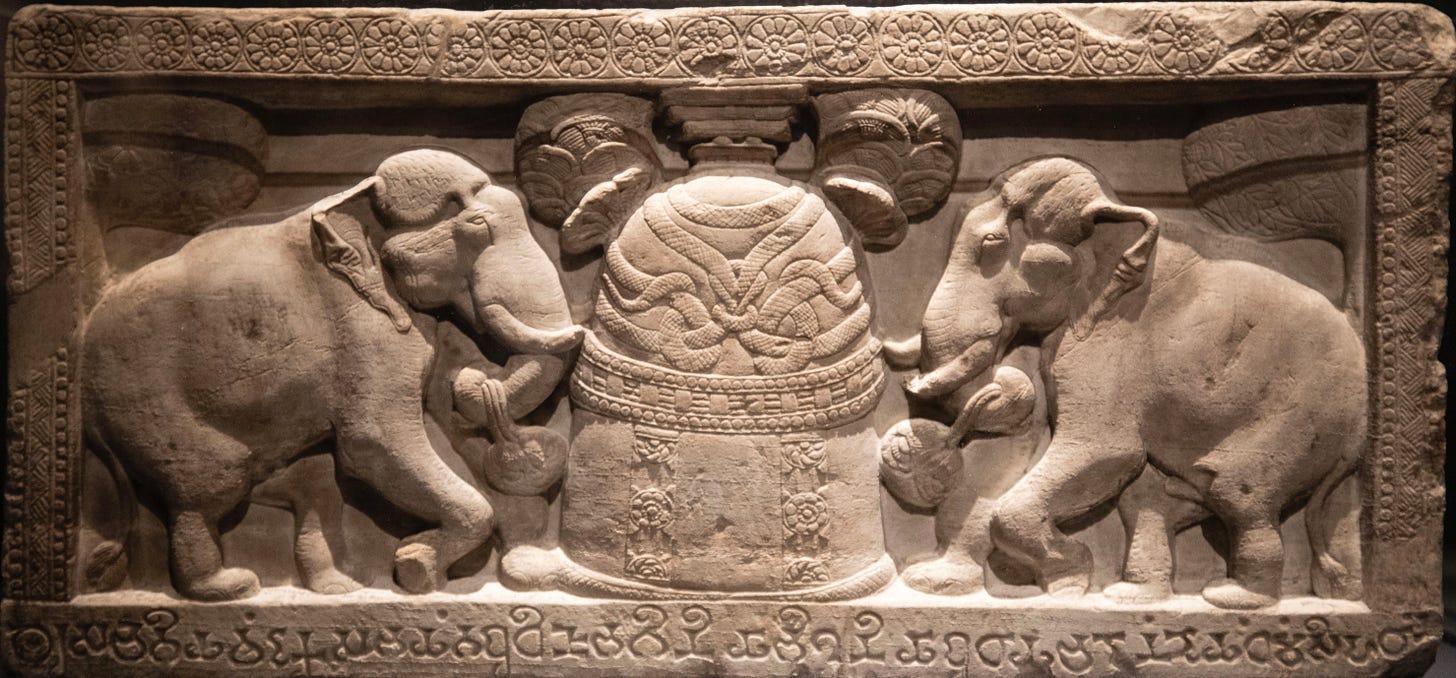Photo: Pillar abacus with Elephants venerating the Ramagrama stupa. Amaravati Great Stupa, Guntur District, Andhra Pradesh. Sad, Late first century CE, Limestone. Britsh Museum, London.
From the Metropolitan Museum of Art show, “Tree and serpent,” New York.
I didn't sleep well last night. I woke up at about 2:30 and dozed until 4 AM. This used to upset me, but I eventually began to understand that the rhythms of life are what they are and I need to accept them more graciously.
So it's very early in the morning and yet already I have seemingly done much.
I begin today all over again from zero. This happens every day.
Each day seems to last for a week or two. Time moves very slowly for me nowadays. This is part of what takes place when one has continuity of being: each minute stretches out into an extraordinary length of time. I use the word extraordinary, but I suppose it’s actually rather ordinary; it's our perception of time as being brief and passing quickly that’s at fault and flighty, rather than time itself. If our perception from within changes, our perception of time changes. I've spoken of that before; but I've never really spoken much about the nature of time of itself, rather, I’m almost always talking about sensation, because it is so absolutely essential to everything that can come to be.
Yet perhaps the whole point of a new inner sensation, as it brings us together within the gravity and magnetism of our being, is to see time for what it is, rather than to live in our intellect and thus exist mostly in a dream.
Time is the full extent of our life, the entire landscape we inhabit: and it’s a vast landscape. Unless we come back to our sensation on a permanent basis and become more unified from within, we’ll never experience the size, the shape, the incredible durability of that landscape.
Keep reading with a 7-day free trial
Subscribe to Zen, Yoga, Gurdjieff: Lee's Gurdjieff Newsletter to keep reading this post and get 7 days of free access to the full post archives.





